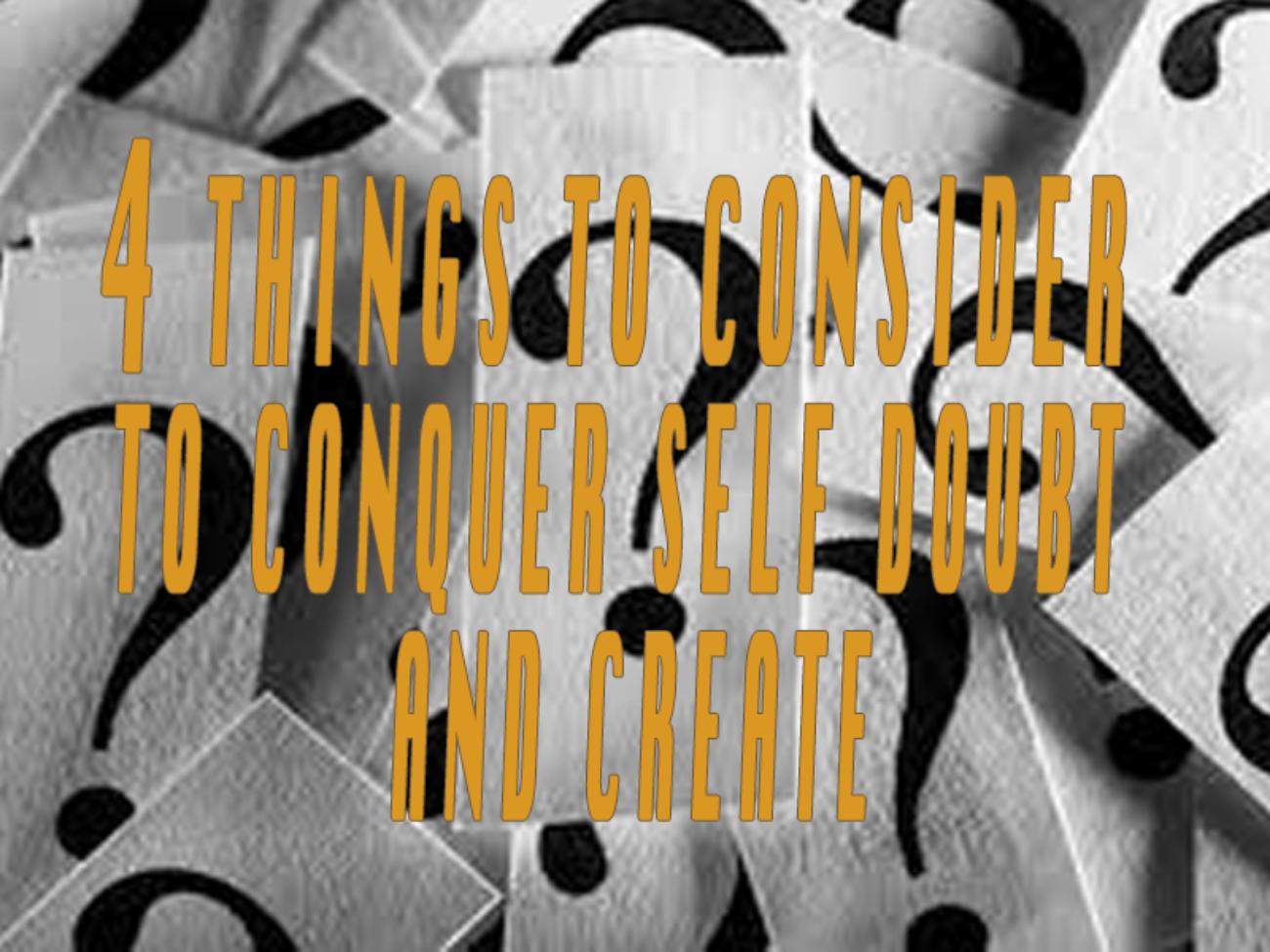Achickwitbeatz presents the Instrumental Intel podcast, bringing you information instrumental to your artistic career including music industry news & tips, insights & interviews, and beats for your inspiration. Listen on Saturdays at 7 pm EST on Grander Radio and Achickwitbeatz.com.
Follow on Facebook, Instagram, Twitter, YouTube Audiomack & SoundCloud, and subscribe on your favorite podcast platform. Download the Grander Media app to listen to Grander Radio on the go.
- Art
- Independent Labels
- Internet Radio
- Music Documentaries
- Album Reviews
- Music History
- Music Industry News
- Free Game Friday
- Free Downloads
- Poetry
- Books
- Interviews
- Did You See It?!
- Hip Hop History
- Hear Here
- Music News
- Hip Hop Documentaries
- Music Marvels Radio Show
- Think Piece Thursday
- Mini Documentaries
- Instrumental Intel
- Music Humor
- Indie Analysis
- Conversations & Quotables
- Music
- Resources for Artists
- Podcasts
- Beats/Instrumentals
- Music Education
00:01
Hey, thank you so much for tuning in to Instrumental Intel. I am your host, music producer, Achickwitbeatz. And I'm glad that you've joined me today. I got another episode for you lined up with music industry news, highlights, beats produced by me for your inspiration. And later, my special guest, singer-songwriter, Adri-Anne Ralph will be joining me. We're gonna talk about crafting emotional connections through song and so much more. So it's going to be a great time.
00:25
And before I go ahead and drop that first beat, I gotta give a shout out to my home station, Grander Radio out of Grand Rapids, Michigan. And with that, let's go.
10:24
Hey, this is music producer Achickwitbeatz, and you're listening to my podcast, Instrumental Intel.
13:40
Alright, I'm back with the music biz brief. First up, TikTok signed a multi-year direct deal with Merlin member United Masters. The prominent indie artist services and distribution company's entire catalog will now be integrated into the platform, giving independent artists commercial opportunities via TikTok's commercial music library.
13:58
This shift comes after the social platform opted to end its blanket licensing deal with Merlin due to concerns over quality control, and they're now pursuing direct deals with individual members and that's a big one to score. And I'll be sure to keep you posted with updates as they become available. Next up, Sony Music has acquired two fan engagement apps, Songwhip and Fansifter, as part of its broader strategy to enhance artist-fan relationships. Songwhip helps artists create custom microsites to centralize marketing content.
14:27
while Fansifter uses data algorithms to categorize fans, allowing for tailored engagement with super fans. These acquisitions, highlighted at Sony's Immersive Tech Day, reflect the growing focus on monetizing fan interactions in the music industry. Additionally, Sony revealed a virtual performance by Miles Smith in Fortnite, showcasing its increasing presence in the immersive entertainment and gaming space.
14:50
Also, you may have heard 2Live Crew won a legal battle to regain ownership of their Recordings catalog, which was acquired by Lil Joe Records in the 90s after their previous label went bankrupt. The group sought to exercise their termination rights under US law, leading to a dispute over whether those rights applied to catalogs sold through bankruptcy. A jury ruled in favor of 2Live Crew, marking a significant victory for artists. However, Lil Joe Records plans to appeal, potentially taking the case to the US Supreme Court.
15:20
So we have to see what happens with that, but for right now, it's definitely a major victory and it'll be interesting to see how many people may be able to utilize this as a precedent to gain their rights if they've lost their catalogs in a similar way. In other news, Hybe social platform Weverse is launching a new paid membership tier on December 1st, offering offline access, ad-free video streams, and higher-quality content.
15:44
However, controversy has arisen as 130 partner labels reportedly face mandatory participation with Weverse taking a 30-60% cut of subscription revenues. This has sparked complaints from smaller labels, with politician Rep. Lee Jung-moon calling for South Korea's Fair Trade Commission to investigate the platform's practices. Next up, Universal Music Greater China has announced a strategic partnership with IQIYI to distribute music from the contestants of
16:13
the Rap of China 2024 worldwide. Under this deal, UMGC will provide global distribution and support for new releases, while the top three finalists will be invited to collaborate with international artists at UMG's studios. The hit show, which debuted in 2017, has launched many local rappers, and this partnership aims to expand the global reach of Chinese rap talent, bridging cultural gaps in the international music scene.
16:38
In streaming and social media news, Instagram and Spotify have launched a new feature allowing users to add songs from Instagram stories directly to their Spotify playlist. Available globally on iOS and Android, users can now click an Add to Playlist button within Stories to save tracks to their Spotify library. To use the feature, users must update both apps and connect their Spotify account to Instagram. Songs added will appear in the Like Songs playlist in your library on Spotify.
17:08
The British phonographic industry reported that British music exports hit a record 775 million pounds in 2023, but growth slowed sharply compared to 2022. Despite more UK artists gaining global streams, the country's share of global audio streams fell from 17% in 2015 to under 10% in 2023. The BPI warns that rising global competition, especially from countries like South Korea and Nigeria, is affecting the UK's market share.
17:35
They are urging the UK government to support the music industry with policies similar to those boosting exports in other countries. And finally, TikTok and SoundCloud have revealed new stats ahead of the annual Amsterdam Dance event. TikTok reported a 70% year-over-year increase in video creations using electronic music, with genres like drum and bass, techno and trance leading the charge. Its hashtag, Electronic Music Hub, launched in the UK in 2022 and is now expanding globally.
18:03
TikTok's music head noted that the EDM festival Tomorrowland has amassed 3.5 billion views on the platform this year. Meanwhile, SoundCloud revealed that electronic music fans are the most engaged on its service with uploads of the genre expected to grow by 21%. The platform predicts electronic music will account for nearly 22% of all streams in 2024, with trance being the fastest-growing genre and Vietnam emerging as a key market for the Viena House subgenre.
18:32
Alright, and that's a wrap for this week's music biz brief. I'm gonna take a quick pause for the cause and then I'll be back with my special guest Adri-Anne Ralph right after this. Keep it locked!
29:45
Hey, I'm Achickwitbeatz, multi-genre music producer and strategist to indie artists and labels. Visit achickwitbeatz.com for resources for artists and instrumentals in various genres available for songs, blogs, blogs, podcasts, themes, TV, film, commercials, and more. Once again, that's achickwitbeatz.com. That's A-C-H-I-C-K-W-I-T-B-E-A-T-Z.com Let's make something happen.
30:15
Thank you so much for tuning in to instrumental Intel. I am your host, music producer, Achickwitbeatz. And I'm excited, thrilled, and delighted to announce that I have in the virtual building with me today another producer, singer, songwriter. I mean, she does so much. I'm sure that I'm leaving out some stuff, but Adri-Anne, so thank you for joining me, taking time out of your busy schedule. You were on our previous show, Music Marvels, before.
30:42
but this is your first time here on instrumental intel. So if you could give the people a little bit of background as into who you are and how you first got started with music. Sure. So I'm a singer, songwriter and vocal coach, and I've done many things, including being like a performing artist, recording artist, and also doing session vocals. And currently,
31:12
I'm recovering from like a pretty, pretty intense health challenge that stopped me from singing for a while. So I'm now trying to get back into it. But I started out just really loving to write songs. And I remember like my parents gave me the opportunity to have piano lessons and like my piano teacher would get really frustrated.
31:40
because I would like make up my own songs instead of learning the songs that I was supposed to learn. Oh wow. So I kind of like, now that I'm a parent and I see my son do that kind of thing, it's kind of funny to be like, no, like, I understand why she was frustrated, but I feel like that creativity, like that spark of like wanting to explore ideas and play with sounds and like...
32:08
just make up your own stuff is like something to be encouraged. I'm glad my parents encouraged me to do that. Yeah. Because I mean, you know, if you had that spark back then, you know, it was just kind of indicative of what was to come. And so it's kind of good that you can see that in your son now and know to nurture it as well. Oh, yeah. So, you know, who were some of your biggest influences from when you got started? Um, I...
32:38
Let me think. Now.
32:45
So as far as music, the music that I really loved growing up was R&B, soul, gospel, and then also randomly folk and Irish music. They're not really similar, but I can kind of look back and be like, oh, I love the harmonies.
33:15
and the groove and the feel and the passion of R&B and soul. And then you can kind of see in folk and Irish music, there's a lot of storytelling. And so it's just a different way that emotions come through and that the song tells a story through almost poetic words, instead of a person's voice being so conveying emotion. But they're both.
33:45
carrying like a story. So I think that's really what I love is like, that's what I gravitated towards. I was always like, what are the words? What are they singing about? I would like ask my dad like, like, so Whitney Houston's How Will I Know? I remember being like, Dad, what's she singing about? Why does she say, I want to call but I'm too shy? Like, why doesn't she just call?
34:13
And he was like, well, Adri-Anne, when do you like a boy anyways? Oh, wow. Man, that's pretty cool that you were picking up on that back then. Like, yeah, just say it. What's the problem here? Yeah, I think I never had a problem with that. That's awesome. So, okay, with your musical taste, I think that that's really cool that...
34:41
It's eclectic, but they all still kind of fit with the way that you just explained that. So yeah, I guess, how could I ask this question? Around when did you decide that you wanted to start doing the storytelling aspect with your own music? How about that? Oh yeah, that's a good question. So I was about 14, I think.
35:09
I was about 14 and before that, I was really into dance. And then I think when I was about 14, I just, I kind of came to the realization that like my body type was never, I was never gonna be able to be a professional dancer. So- I went through that too. Yeah, you're like, yeah, I love dancing, but I don't look like them.
35:38
So I think I was just like, yeah, I just don't have the body for this. And like, I was, to be candid, I was always struggling with my weight and with dance. Like you can't really have that. Like, so anyway, it was just kind of, I realized like, I needed like a new way or my, I guess my, my like passion for dancing slowly shifted over to something else.
36:06
once I kind of let go of it. And I started writing songs because I kind of had like in the back of my head the understanding that you can't just like record the songs you hear on the radio and then sell them. Like, I didn't really know anything about copyright at that time, but I kind of knew like... So I was like, well if I want to record and like sell my music, I guess I'll have to write it.
36:36
I just started writing, like I just started trying to write songs and like, I kind of caught, I picked up on the patterns that happen in commercial music, like first chorus, first chorus, bridge, chorus, like the common tricks and the common things that people used in the music that of the time and I sort of kind of just imitated the patterns like with my own words. So. Wow.
37:06
That's pretty dope. I've had a lot of guests that have talked about how other people had to teach them that. So it's kind of interesting that you were able to kind of figure that out on your own. Yeah, I can't even say how that kind of happened in my mind. I kind of just was like, okay, well, if you want to sing a song like this one, you're going to need to start out with, you're going to need to like, you know.
37:35
start out with the story and then have a big emotional chorus and then like, so anyway, yeah, I don't even know how I figured it out. I just, yeah. Yeah, it's probably just a part of you from, you know, being into it so much and just kind of absorbing it. I think that's really awesome. Yeah, I think so. And I think, I mean, we also, we also like we're
38:02
part of a really small church. So my family was leading music at our church. Like, we, it was like back in the days of like the slide projector. Yeah, like the transparency. So like on the, on the transparency would be like verse and then the lyrics. So everyone could sing. And it was like chorus. So I think maybe that's how I like understood what verses and choruses were. Like,
38:31
Yeah. That's the only thing I could think of. Okay. Well, that's pretty cool. Um, so yeah, you mentioned, you know, your family and you coming up in the church. How do you feel like that's shaped your musical styling? Um, I, so I think it's, it's both helped it and made it a struggle.
38:59
I'll explain that. So in one way, like if you go to like a traditional church, there will always be singing and often there's choir. So you're singing, you're learning, you're starting just to sing in harmony without anyone really teaching you usually. I mean in our church we were, we were a very small church. So and then
39:29
Um, cause my family was the worship band. I ended up learning how to play bass. So I would play bass in the band and then I would also play piano sometimes. And then I would also like sing harmonies with my dad who was leading. And so I feel like that gave me a really good, just musical, like understanding music. And then, um, as I got older and I started singing, I was kind of realizing
40:00
I really love the sounds that I love. I love how gospel singers sing. I love how R&B singers sing. I love the melodies. I love the rhythms. So I was like, that's the kind of music I want to sing and write. But at church, the church that I was going to, and like a lot of, I would say mainstream churches.
40:30
the music that you sing is a little more on the countryside. Like it's a little more towards the, yeah, I'm just gonna say country. So that's like the Nashville singer-songwriter sound, I guess. Yeah. Although I guess there's more of a fusion nowadays, but back then it was like, like when it like Michael W. Smith, I was like, that's so cheesy. And then like Amy Grant, I would be like,
40:57
Alright, some of her stuff is good, but it's still a little cheesy. Like, and that was like the one I had access to. So like, I remember when like Mary Mary and Kirk Franklin came out and out of Eden, where I was like in heaven, I was like, oh, somebody is making Christian music. That's the genres that I love. And so then I guess my influences shifted.
41:26
towards that. So I even been told like when I do vocal arrangements or if I write songs, I've been told by some producers and other songwriters like, you have like a really strong gospel influence. Like I can hear like the gospel influence. I'm like, okay, like I can see that. I can see how that happened. So. Yeah, it makes a lot of sense. And especially since, you know, when you look at
41:56
you know, just hailed as geniuses as far as like vocal stylings. Most of them did get their start in their church. So a lot of times they kind of have that same, you know, umph, like they might be singing R&B or soul, but they still kind of have that gospel vibe, um, you know, like in their tone. Yeah. And even like, I think, um, well, my husband's a musician too. He plays guitar and he.
42:24
And I've heard from other musicians too, like they've always said, like, if you want to get really good, play with a gospel band, like play in the band of a gospel church or gospel choir, because they like know how to improvise, they know how to like, play not just the basic chords, they're going to like do chord substitutions, they're going to be, the music is complex, like, so I think
42:53
Like, that's what I love, like, that's part of what I love. And like, I can see why like, good, really good singers who have like the skill of improvising and doing runs and like belting and like, I can see how like, being raised in that kind of a, you know, church environment, kind of teaches them that, like from a young age. Yeah.
43:21
And yeah, especially you're right with those runs. My goodness. Yeah. I'm always impressed when people can pull that off very well. I'm not one of those people, but yeah, I do find it very impressive when other people can do it. Okay. When it's done well, it's amazing. Yeah. So, okay. You mentioned, okay, you grew up around music, your husband plays, your son is starting to play. Um, how excited are you that he's kind of got that musical dream from you too?
43:52
Um, we're, I think we're really pleased. Like we're just, we're at the point where we're like, we, we want, we just want you to follow God's plan for you. And whatever that leads you to, like, we want you to thrive in it. So I would say we're not like, we're not trying to like streamline him into music or arts or math or anything, we're just like,
44:20
It's nice to see his creativity coming out. Like it's, it's, it's good. I feel like every profession needs creativity. So that's great. Yeah. That's also great that you're not trying to force it on him. You know, a lot of times as creatives you get excited like, yes, he's going to do this. He's going to follow in our footsteps. But yeah, right. You're going to be a mini-me. I'm going to make you famous. Right. No, we're not going to do that.
44:47
Okay, so can you kind of walk us through like your typical creative process? You know, if you decide, okay, I'm just going to see what I come up with, whether you have an idea in mind to begin with, or if you're just kind of vibing and then come up with something to record or write. Oh, yeah. So I, the last, probably...
45:15
I want to say the last like eight to 10 years that I've been doing songwriting, I have, I've been doing mostly top lining. So like a producer, I worked with a production group in Tennessee for a while. Although they've kind of dissolved now, but for a while, like it was a really fun partnership. And they would just send me like,
45:45
track that they thought I would sound good on and then I would just so I would write a song But then oftentimes like I would have to just like edit the track itself kind of move chunks around or like repeat certain chunks to fit the structure of the song that I was writing and then So as far as creative process
46:09
I usually walk around with three or four ideas at all times. It's kind of like the question is, which one am I gonna flesh out? And how am I gonna do it? So when they send me a track, I'd be like, okay, which idea kind of fits this? Or even if it doesn't,
46:39
What kind of vibe do I get from this track? Like what emotions am I feeling? What story could I write or what emotion could I focus on? And then I usually start with the chorus because I feel like that's like the main idea of the song. And then once I have the chorus, the main idea, then I have to go back and figure out how do I set it up? Like what am I?
47:06
How do I want to like elaborate about this main idea? And what story do I want to tell? And where do I want it to go? So that's kind of how I do it. And usually like I'll just sit there with the track, just playing over and over on a loop and I'll like sing into my phone or like a little recorder, just some melodies and write down like words that come up. And until I kind of
47:36
Until I come up with something kind of more, I want to say like organized. Yeah, exactly. Until it kind of gels. Yeah. Yeah. So, but writing from scratch is harder because you, you just kind of, you're starting with just the idea. Then you have to figure out how to say it. And then you have to be like,
48:05
is this upbeat? Is this slow? Is it happy? Is it sad? Like, there's no like mood already set for you and there's no vibe and there's no parameters already. So, so, um, I am taking a songwriting course right now that's more geared towards that because that's kind of what I wanted to step back and start doing more of. Okay. Yeah. Wow.
48:32
Yeah, that's a really interesting process. Especially, you know, when you have to take advantage of recording, like in your phone, how many times does that ever happen when you've been out in public and something kind of struck you and you're like, Oh my gosh, I probably look crazy to the next car. My gosh. I was on a treadmill at the gym and an idea came to me and I just took up my phone. I was like.
48:58
I just sang quietly into my phone, like hoping nobody would notice. But yeah, that happens to me a lot. Yeah, it's just like, you know, when you have those thoughts, you can't let them slip away, at least not me. There's been so many times where I'm like, oh, I'll remember it and then I forget. So yeah, ever since then, I'm just like, nope. If the idea hits me, I gotta do it regardless of how crazy I look. But yeah, thankfully I haven't been on the treadmill at the gym.
49:27
when that's happened, but yeah. Yeah, I've been in some odd situations with that. But yeah, I kind of feel you on what you're saying as far as whether if you have the music first, it does kind of give you a vibe to work from, but to just kind of do it from scratch is just totally different. You know, I've had a few instances to where, you know, maybe I had something written down without anything to go with it, but then all of a sudden, you know,
49:56
maybe like when I'm browsing tracks and then I'm like, hey, wait, this might fit. But I feel like that's kind of one of those things that I should probably be working on a little bit more. So I think it's cool that you're actually taking a class to be able to help with that. What advice do you have to offer, I guess, for anyone that can be seasoned like you are, but still allowing room for growth? So, you know, you've been doing this for a long time, but you're still taking a step back and saying,
50:25
I could learn something. So, you know, what advice do you have for anybody that might just kind of want to continue to elevate in their craft? Oh, I would definitely say, like it depends which way you want to grow, but there's so many really good like resources. Some of them are costly. Some of them are like pretty low cost, but,
50:55
Like for me, I was used to writing like pop, R&B, like, so it's very like vibe-based, groove-based, not as much of a storytelling, more of like focusing on a feeling or an emotion or like a moment. So I was like, I really want to learn how to be more descriptive and poetic with my lyrics and tell a story. Like say,
51:24
really tell the stories that I want to tell. And so I'm taking a class from somebody who's taught more like on the country folk side of things. But for somebody who's already good at that and they want to develop more of a groove and like a sound, like I know masterclass, I think like Timbaland has his own masterclass on production. And then I think,
51:53
Like Charlie Puth also has a master class. Like there's so many online resources. And I would say like, don't ever think that you're, like you're done learning. Like you can always grab more tools and it just make your stuff more interesting. So that would be my advice. That's an awesome, Jim. So, you know, while you're doing this, working and still, you know, constantly making sure that you're elevating what you do.
52:22
Are there any things that you probably foresee coming? Like, well, you know, we're in the last quarter of the year, so I'll say maybe for 2025. New goals that you see wanting to accomplish that you don't mind sharing. Because yeah, I'm not trying to put you on the spot or anything. Oh, yeah. No, that's okay. Um, I... Me and my husband have both felt like I have some things that...
52:52
that like God just kind of has spoken to me that need to be expressed. So whether it's like through struggles that I've gone through or things that I've learned or like things that I'm still struggling with. But one of my dreams has been to do like a Christian album that is
53:21
little bit more like less of so okay let me rewind so like a lot of Christian albums or artists um it's very like upbeat very and a lot of what they say is very like it's been said in the same way before it's not and a lot of it is not very
53:49
Like it could be encouraging, but to somebody who's really struggling deeply, it's just, it's so surface level, I guess. So, and I've appreciated artists. This is probably controversial, but I've appreciated artists like Jasmine Sullivan, her, what's her album? I can see the cover in my brain. She's in like a black leather jacket. Oh, yeah.
54:19
It has girl like me and pick up your feelings on it. But and like I'm not saying like if you're a Christian, go listen to this album because there's a lot of top subjects on there that I'm like, this isn't super, this isn't honoring to like, like from a Christian worldview. But what I love about it is it's so honest. Like she's just like, this is what I feel. This is how it is to be me. And I think that's why people connect with it because they're like, yeah.
54:48
I felt that way. It may not be a feeling that we want to focus on, but it's like I connect to it. So I appreciate those things, and I kind of wanted to make my version where it's speaking from my heart things that I've struggled with and I've grappled with and felt, but in a way that is through more of a Christian worldview, I guess.
55:18
Yeah. So something that like a Christian could listen to, and I'm not really commenting on her spirituality because I don't know her. I don't know her where she is, but I'm just saying like from what I perceive as things that are God-honoring like topics and like things like that. But I wanted to share that part of myself so that other people can listen to it and be like,
55:48
felt that way, but she's saying she feels that way. Like, okay, I guess it's like, I don't feel alone. Like, yes, I identify with this. So, yeah. So, and I've also spent like a lot of years with people telling me like, you should try to sound more like this, or you should like try not to do so many runs because that's not in, or you should try to sound less R&B, or you should try to sound more.
56:17
or you should write this. I've had so many people tell me, and I feel like most of my songwriting career I've been trying to chase trends or sound current, and I don't wanna do that anymore. I just wanna write from my heart something that's truly from me. So it probably will be R&B. But maybe not as, I don't know.
56:45
Anyway, that's what's coming up for me. That's what I feel like. That's why I've kind of delved more into the lyric writing side of things for right now. OK, that's phenomenal. And yeah, I totally get what you're saying. Because a lot of times, people need to actually be able to acknowledge how they're feeling about something before they can even move past it. So it would be doing something that's deeper than just the surface level, something that someone can relate to and kind of pull from.
57:15
from a Christian viewpoint would be phenomenal. And that's something that you don't really see happening that often. So I think what you're doing is great. I'm really excited to hear what you've got coming up. And since the time, man, it just seems like it started going so fast. I hope that that means that you can come back again and we can do a round two sometime soon if you're willing. Oh yeah. I...
57:43
I love talking about music and songwriting creativity. So anytime, if you're ever like, hey, I need to fill the spot. Awesome. Let me know. Awesome. So yeah, before we go ahead and close this out, I want to make sure that everyone knows where they can follow you. Um, you know, and keep up with your music, um, any previous projects that you want them to check out, any of that stuff, whatever you want to share or any shout-outs at this point you can do now. Oh.
58:13
Shout outs to my husband for encouraging me. He's like, he's kept me going, like when I've wanted to give up. So for sure. So I'm on Spotify, my artist name is Adri-Anne Ralph, and it has a hyphen in the middle of Adri-Anne. So it's Adri-Anne and then Ralph, like Ralph's grocery store.
58:42
So I can be found there on Spotify and also, I mean, if you just Google Adri-Anne Ralph music, you will come up with a lot of resources, but I feel like people use Spotify, SoundCloud. I'm also on SoundCloud. Excuse me, I'm losing my voice now. On Instagram and socials, I'm Adriaan Sounds Like. So if you are like, what does Adriaan sound like?
59:11
The answer is, Adri-Anne sounds like. So if you, if you look it up on social media, it's Adri-Anne sounds like. Yeah. Beautiful. Yeah. That's about it. All right. Well, thank you so much. I'm looking forward to next time. And yeah, I really appreciate you taking time out of your busy schedule. Thank you. Thank you for having me.
59:32
Alright, and that's a wrap for this episode of instrumental intel. I've been your host, music producer, or Achickwitbeatz. I'd like to thank you for listening. I'd like to thank my special guest Adri-Anne Ralph for coming through and sharing her knowledge, experience, and wisdom. I'd also like to thank my home station, Grander Radio out of Grand Rapids, Michigan. And I'm already excited to come back next week. I got more goodness lined up for you, so make sure that you return. Till then, you know where to find me. Tune in, tell a friend. I'll see you then. Peace.
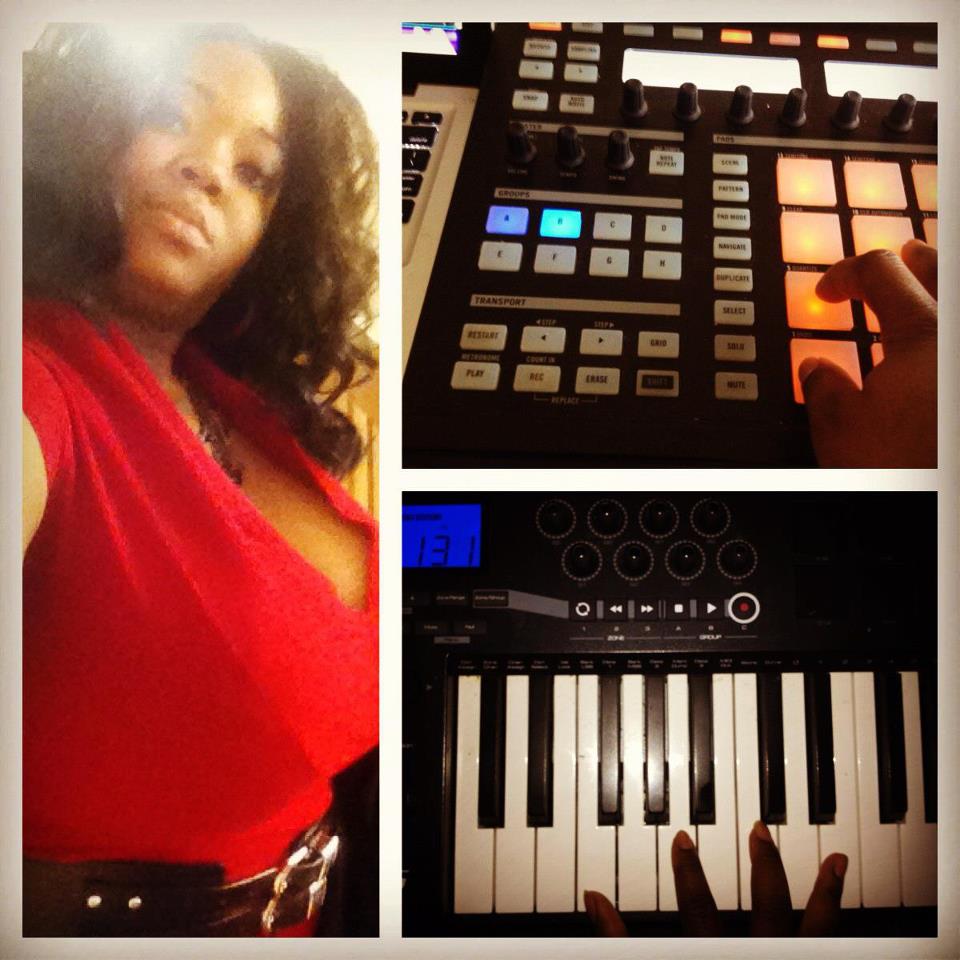







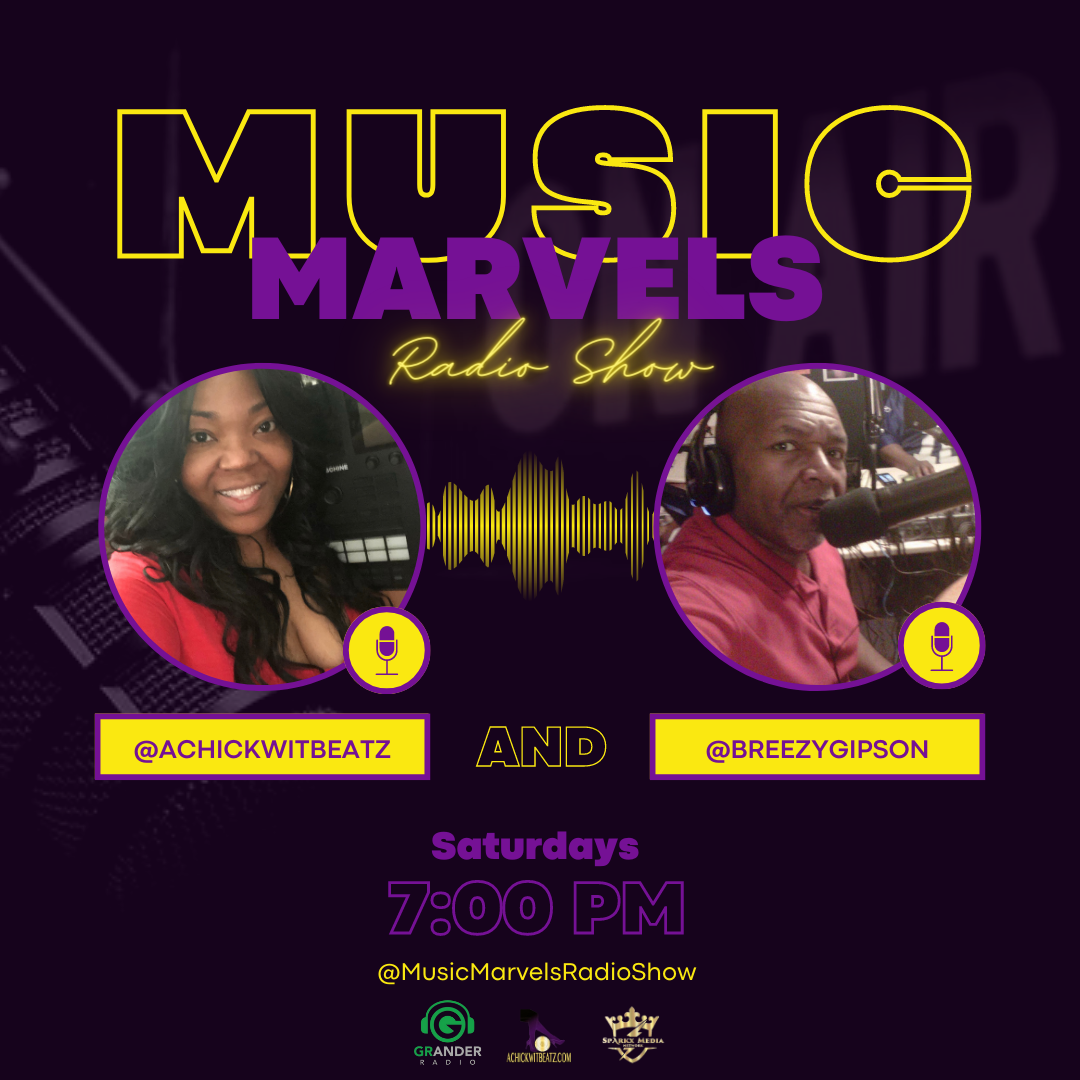
![Hear Here: Achickwitbeatz - Dopamine & Serotonin [Single]](https://images.squarespace-cdn.com/content/v1/52b0b90ae4b0293bfed0d692/1710852808557-EZYGFDIBHLBSIRFOVS1Q/Dopamine+%26+Serotonin.JPG)


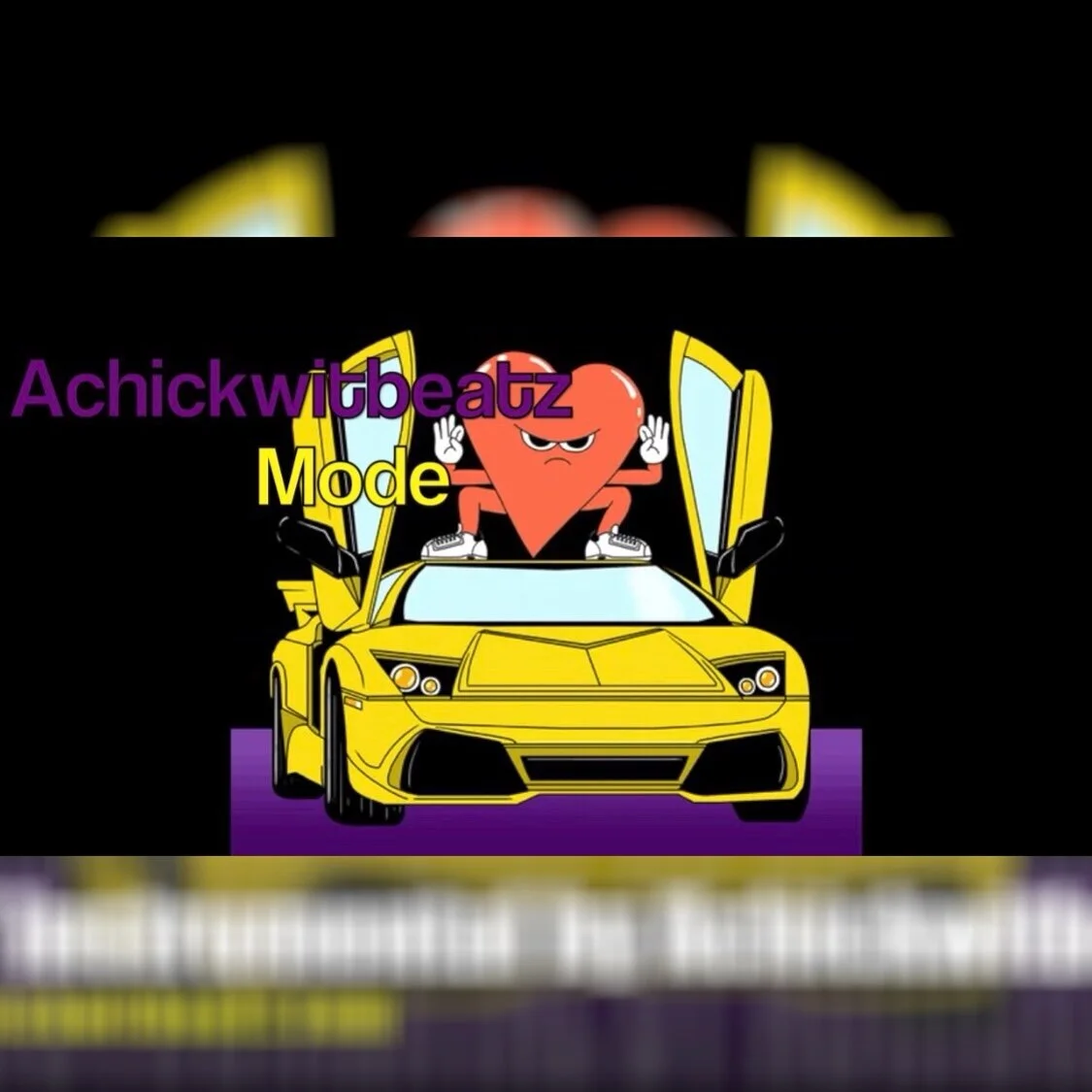
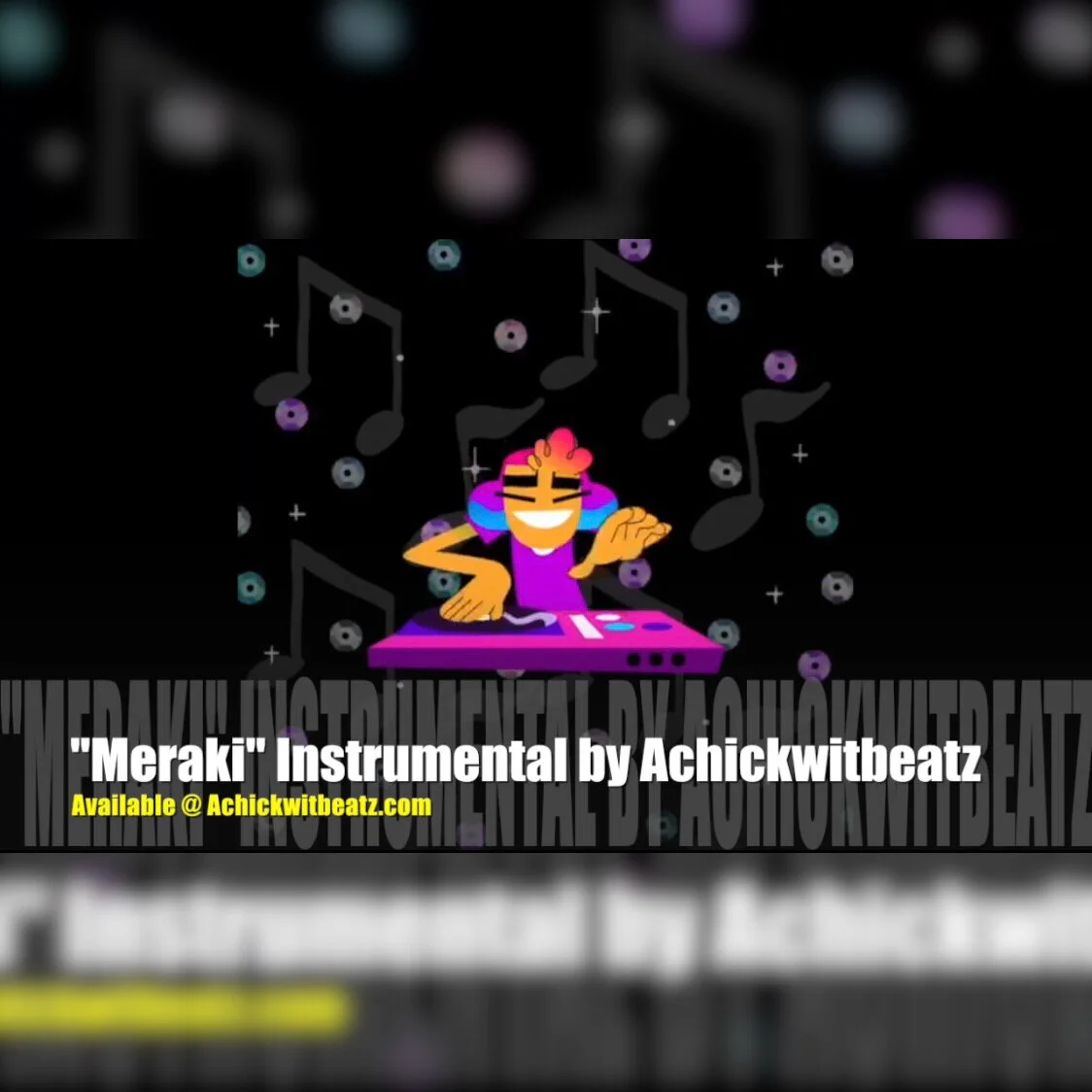





![Hear Here: Dagga Man- "Analytics" [Prod. by Achickwitbeatz]](https://images.squarespace-cdn.com/content/v1/52b0b90ae4b0293bfed0d692/1584638158548-9R55AZLWZIDFJC8LATV6/IMG_2212.JPG)







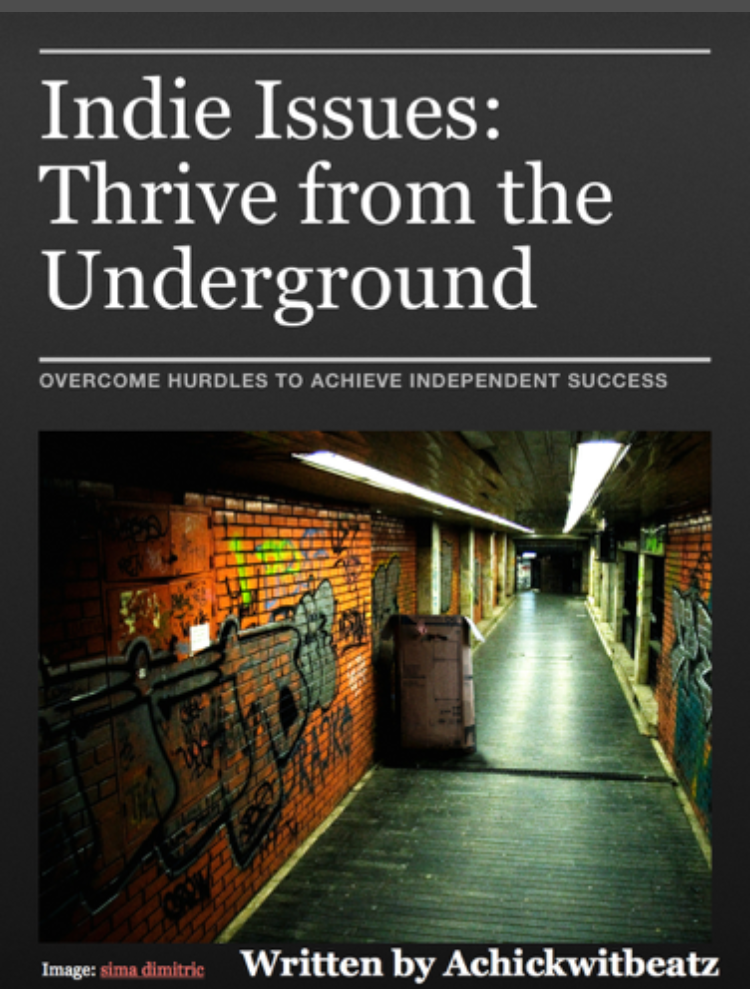
















![Making Music on a Budget [Infographic]](https://images.squarespace-cdn.com/content/v1/52b0b90ae4b0293bfed0d692/1582844361438-3JTE5NT3EL51FHXC0WJI/making-music-on_1929722%25281%2529.jpg)
